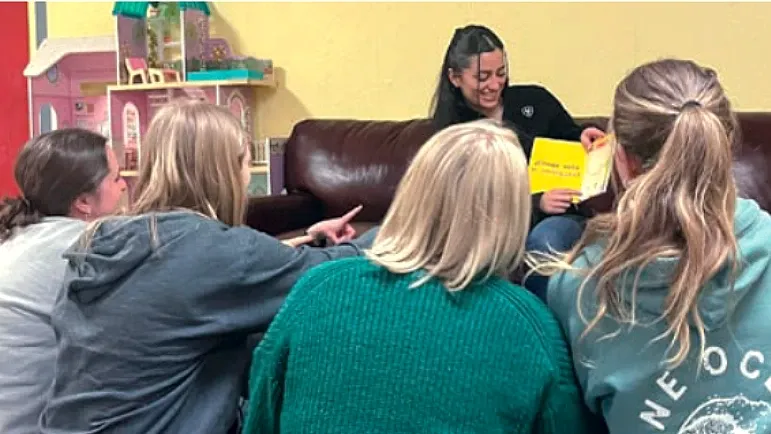Twice a week, second-year doctor of audiology (AuD) student Alexis Dueñas helps preschoolers at homeless shelters improve their school-readiness skills as part of a multidisciplinary research project. For the first-generation Latina college student from Nevada, planning a variety of activities for children — and providing interpreting services for native Spanish-speakers — has been a unique learning experience that will help her pursue her chosen occupation.
“My position in this project has taught me leadership skills that I will carry over to my career as an audiologist,” Dueñas says. “Working with children has taught me to be flexible and to think fast under pressure. Due to their varied attention spans and energy levels, I’ve learned to adapt to my clients’ needs regardless of the planned agenda.”
Insights into under-resourced populations
For Dueñas, the research opportunity through the College of Health Sciences has also shed light on the struggles that under-resourced populations face and how she can better accommodate their needs. “I am now more aware of how priorities may differ, how transportation may be an issue, how I can improve health literacy and much more,” she says. “All of these factors will help me become a better, more well-rounded clinician as I go out to serve my community through the field of audiology.”
“Involving students in research can offer several advantages regarding leadership development, including critical thinking, problem solving and communication.”
– Lauren Little, PhD, OTR/L, FAOTA, associate dean of research for CHS and associate professor of occupational therapy
Like many allied health students, Dueñas chose her career path – and Rush – so she could have a positive impact on patients’ lives. “Rush has given me the opportunity to be involved with my community and help serve under-resourced populations,” she adds.
Opportunities for research
Students from every program at the college have a myriad of opportunities to work on research projects that will help them thrive in their future careers.
“Involving students in research can offer several advantages regarding leadership development, including critical thinking, problem solving and communication,” says Lauren Little, PhD, OTR/L, FAOTA, associate dean of research for CHS and associate professor of occupational therapy. “In research, students have to think on their feet, problem-solve through many situations and communicate effectively with a variety of individuals from different backgrounds.”
Research is part of the college’s commitment to developing the next generation of allied health leaders. “Integrating students into research experiences contributes to the holistic development of leadership skills, combining academic knowledge with practical skills that are invaluable in various professional settings,” Little says.

